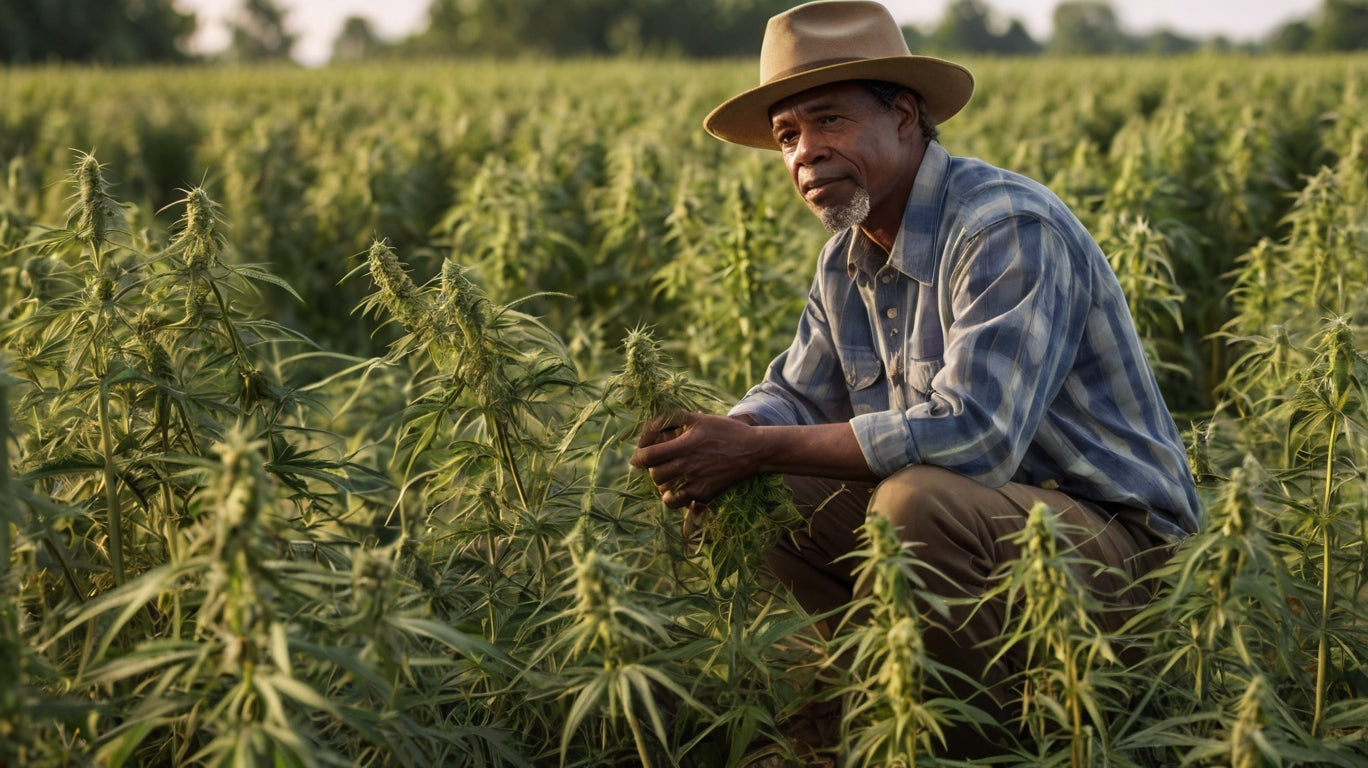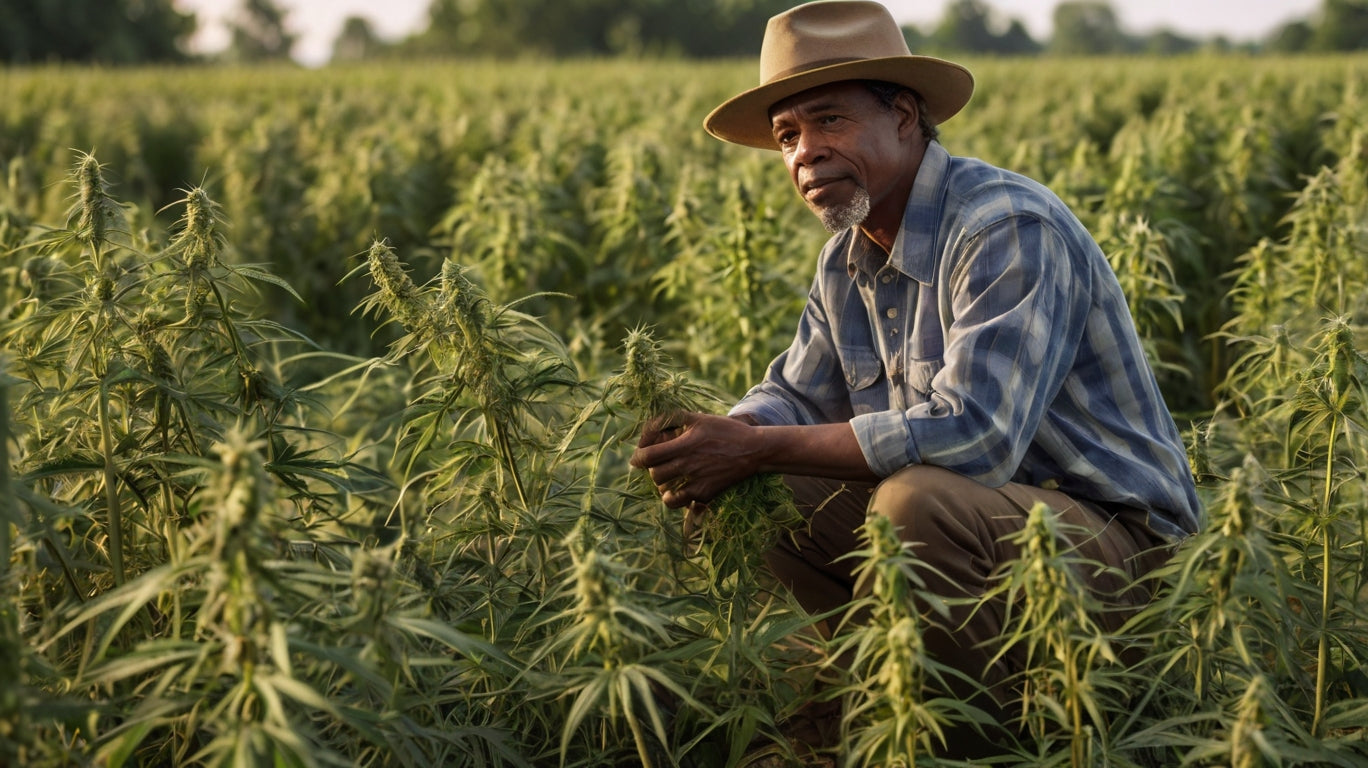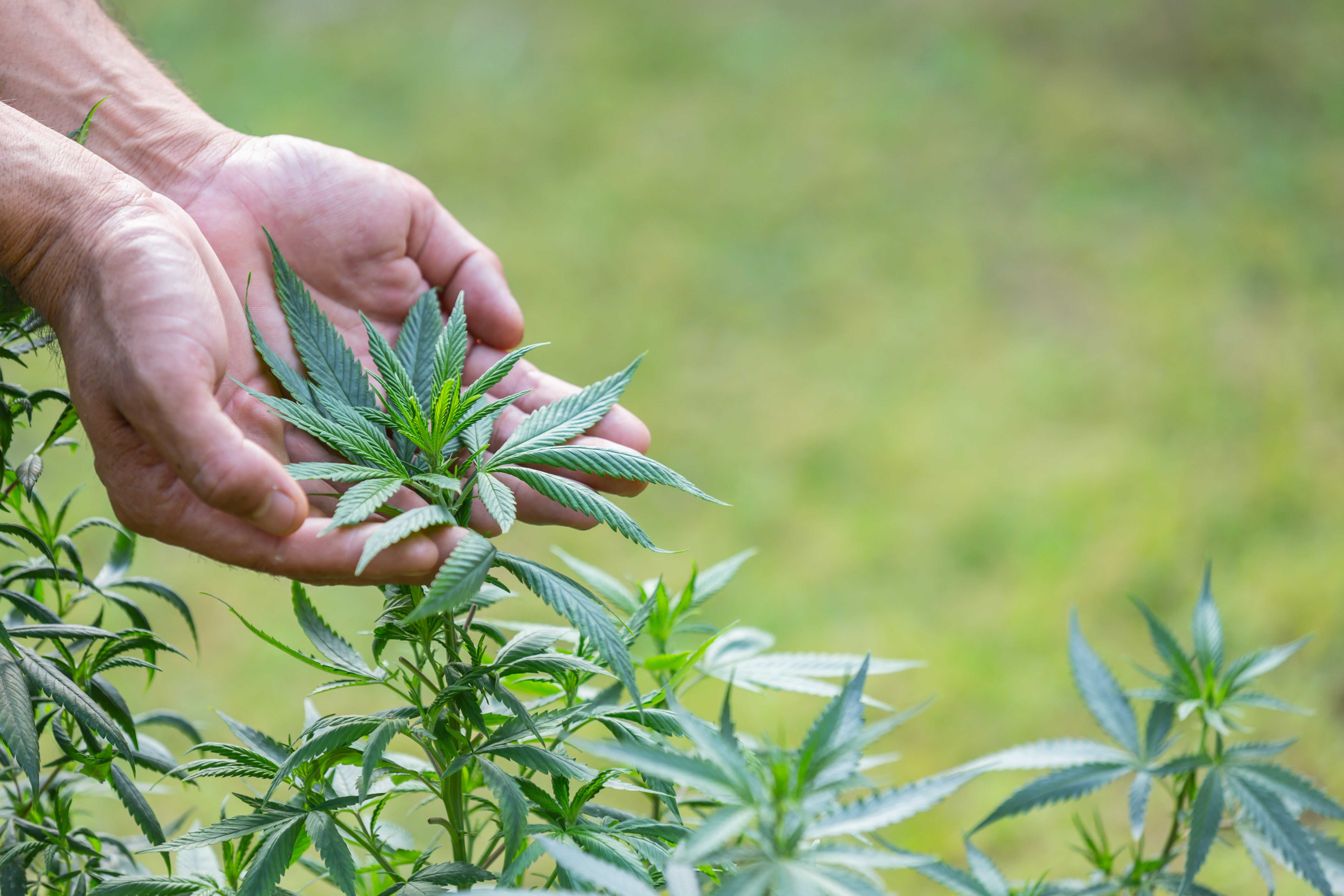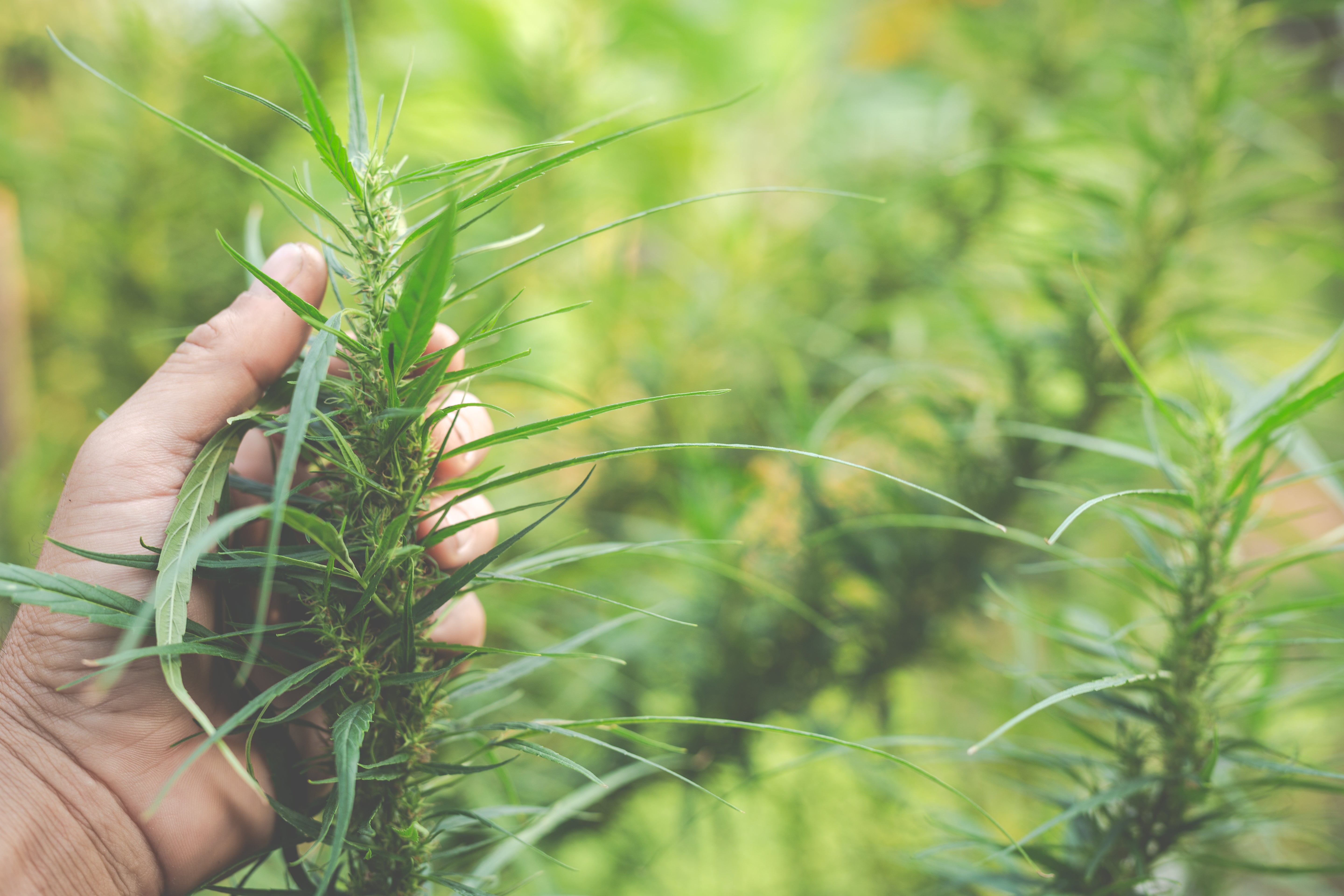The USDA’s Funding Freeze: A Challenge for Industrial Hemp Research and Climate-Smart Initiatives
The U.S. Department of Agriculture (USDA) recently halted funding for industrial hemp research, creating significant challenges for farmers, scientists, universities, and Native American communities. This abrupt decision has disrupted critical projects that aimed to explore industrial hemp's potential to enhance soil health, support environmental sustainability, and create new agricultural opportunities. Without these funds, many research initiatives face suspension or termination, delaying progress in the industry.
Why Industrial Hemp Research Matters
Industrial hemp is a highly versatile crop with numerous benefits. It grows rapidly, requires minimal water, and improves soil quality. Researchers and farmers have been investigating its ability to replace environmentally harmful crops, reduce pollution, and promote sustainable farming practices. The federal government had been financially supporting these efforts, but the funding freeze has now stalled their progress.
A key program affected by this decision is the USDA's Climate-Smart Commodities Initiative, which was designed to promote sustainable agricultural practices that reduce greenhouse gas emissions, enhance soil health, and strengthen climate resilience. Industrial hemp was a major focus due to its ability to sequester carbon dioxide and restore depleted soil. With funding frozen, research projects crucial to helping farmers adapt to climate change are now in jeopardy.
 How the USDA’s Decision Affects University Research
How the USDA’s Decision Affects University Research
Many universities across the country relied on federal grants to study the benefits of industrial hemp. Institutions such as Lincoln University, North Carolina State University, and Southern University were at the forefront of research into hemp integration in crop rotations, soil quality improvement, and regenerative agriculture. These projects were particularly focused on helping small and minority farmers benefit from hemp cultivation.
For example:
-
Lincoln University (Missouri) had secured millions in funding through the Climate-Smart Commodities Initiative to study hemp's role in carbon sequestration and sustainable farming.
-
North Carolina State University was developing resilient industrial hemp strains adapted to various climates to improve crop stability amid extreme weather conditions.
-
Southern University, a historically Black university, was investigating how hemp farming could provide economic opportunities for underprivileged communities while promoting sustainable land use.
With the funding freeze, these institutions may have to scale back or cancel their projects. Researchers, students, and professors who relied on these grants for studies and employment may face significant setbacks. Additionally, partnerships with local farmers who were testing hemp on their land could be disrupted, further delaying advances in sustainable agriculture.
Impact on Climate-Smart Farming and the Environment
Industrial hemp has been identified as one of the most promising crops for climate-smart agriculture due to its ability to:
-
Absorb large amounts of carbon dioxide from the atmosphere.
-
Enrich soil with essential nutrients.
-
Require fewer pesticides and fertilizers than conventional crops.
By stopping funding for industrial hemp research, the USDA is hindering the progress of numerous projects that could promote sustainable and environmentally friendly farming. Without continued research, farmers interested in climate-smart practices will have fewer resources and less guidance. Industrial hemp was being explored as a potential substitute for high-water and chemical-intensive crops, which contribute to climate change. Now, these studies risk being delayed or canceled, leaving farmers without critical data to inform their agricultural decisions.
How This Affects Native American Communities
Many Native American tribes have embraced industrial hemp to revitalize their farming traditions and create economic opportunities. Some tribes received federal grants to study how hemp could help remediate polluted land and stimulate local economies.
For instance:
-
The Aroostook Band of Mi'kmaq (Maine) was using government funding to study hemp's ability to remove toxins from contaminated soil.
With the funding freeze, these important initiatives may not continue, potentially denying Native American communities vital opportunities for economic and environmental progress. Many tribes have worked diligently to develop hemp farming, and this decision threatens to slow their advancements significantly.
 The Economic and Research Fallout
The Economic and Research Fallout
The funding freeze has serious economic consequences as well. Industrial hemp research was generating jobs in farming, processing, and product development. Universities, private businesses, and small farmers were beginning to see tangible financial benefits from these initiatives. However, without federal funding, many of these opportunities may vanish.
Additionally, many companies depended on university-led research to provide the necessary data for expanding their hemp-based businesses. Entrepreneurs developing products such as biodegradable plastics, textiles, and biofuels require scientifically backed research to validate their innovations. Without federal support, these businesses may struggle to attract investors or gain regulatory approval for their products.
What Needs to Happen Next
Many farmers, researchers, universities, and tribal leaders are calling on the USDA to restore funding for industrial hemp research. They argue that this research is essential for:
-
Environmental sustainability.
-
Supporting small and minority farmers.
-
Expanding economic opportunities for Native American communities.
Some universities and businesses are exploring alternative funding sources, such as private donations or state-level grants. While these may provide temporary relief, long-term success depends on stable federal support.
Additionally, there is increasing pressure on lawmakers to introduce legislation ensuring consistent funding for industrial hemp research. Many believe industrial hemp should play a central role in future climate policies, and some members of Congress have begun advocating for restoring federal funding to protect ongoing research from political fluctuations.
Conclusion
The USDA’s funding freeze on industrial hemp research presents a significant challenge for farmers, scientists, universities, and Native American communities. Without financial support, crucial research into climate-smart farming, economic development, and environmental restoration may be halted or significantly delayed.
This decision affects university research programs at institutions such as Lincoln University, North Carolina State, and Southern University. It also impacts Native American communities seeking to use industrial hemp to rehabilitate their lands. Moreover, the freeze disrupts the USDA’s own Climate-Smart Commodities Initiative, which was intended to advance sustainable agriculture.
To sustain progress, lawmakers, researchers, and industry leaders must work together to reinstate funding and continue exploring industrial hemp's numerous benefits. Without immediate action, the agricultural sector risks losing valuable insights into hemp's environmental advantages, economic potential, and role in climate-smart farming.
Frequently Asked Questions
1. Why did the USDA freeze funding for industrial hemp research?
The USDA has not provided a clear explanation for the funding freeze. However, policy changes, shifting budget priorities, or regulatory concerns could be factors.
2. How does this funding freeze impact farmers?
Farmers who were participating in hemp research programs may lose access to critical data and financial support needed to transition to hemp cultivation. Without continued research, they may struggle to make informed decisions about integrating hemp into their farming practices.
3. What role does industrial hemp play in sustainable agriculture?
Industrial hemp absorbs carbon dioxide, improves soil health, requires minimal pesticides and fertilizers, and uses less water compared to conventional crops. It is considered a key crop for climate-smart farming initiatives.
4. How are universities affected by the funding freeze?
Universities like Lincoln University, North Carolina State University, and Southern University were conducting research on hemp’s environmental and economic benefits. Without funding, these projects may be delayed, scaled back, or canceled, impacting students, faculty, and partnering farmers.
5. How does this funding freeze impact Native American communities?
Many Native American tribes were using industrial hemp for land restoration and economic development. The funding freeze jeopardizes these efforts, making it harder for tribal communities to benefit from hemp cultivation.
6. What industries depend on industrial hemp research?
Industries such as biodegradable plastics, textiles, biofuels, and sustainable agriculture rely on research-backed data to develop new hemp-based products. Without funding, businesses may struggle to attract investors and gain regulatory approvals.
7. What is the USDA’s Climate-Smart Commodities Initiative, and how is it affected?
The Climate-Smart Commodities Initiative was designed to promote sustainable farming practices, including industrial hemp as a carbon-sequestering crop. The funding freeze disrupts this initiative, slowing progress on climate-friendly agricultural solutions.
8. What can be done to restore funding for industrial hemp research?
Farmers, researchers, universities, and industry leaders are urging lawmakers to reinstate funding. Alternative funding sources such as state grants and private investments are being explored, but long-term federal support is crucial.
9. How does this funding freeze impact economic growth?
Hemp research was driving job creation in agriculture, processing, and product development. Without funding, economic opportunities may decline, affecting businesses, universities, and farming communities.
10. Is there any legislative action to reinstate funding?
Some lawmakers are advocating for stable funding to support industrial hemp research. Efforts are being made to introduce legislation that ensures long-term financial support for hemp-related projects.







Share:
Poll: How Has Industrial Hemp Impacted Your Industry?
How the Federal Funding Freeze Threatens the Industrial Hemp Industry